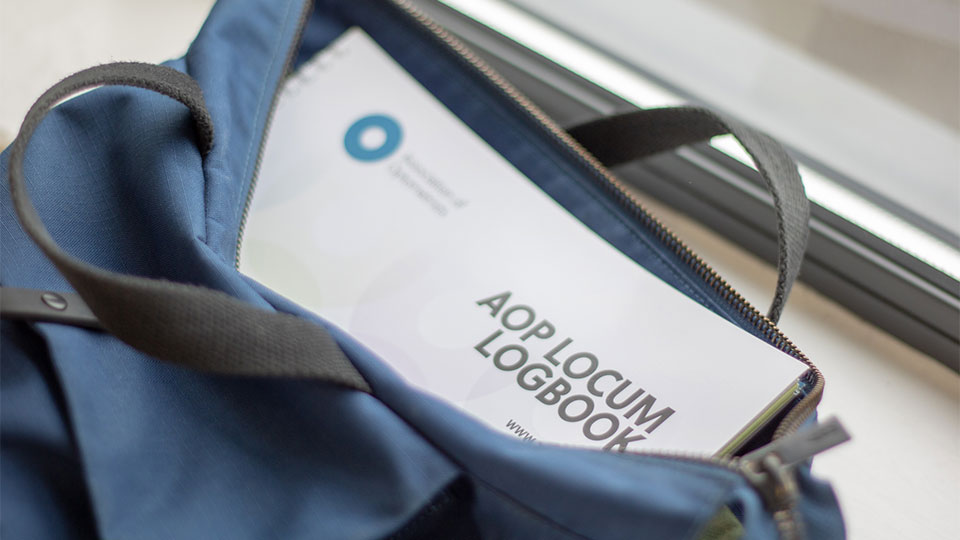- OT
- Life in practice
- Practitioner stories
- I could not live without…my AOP Locum Logbook
I could not live without…
My AOP Locum Logbook
Optometrist, Jason Searle, explains the benefits that his AOP Locum Logbook brings in practice

14 October 2018
The locum optometrist often has more to deal with than just the patients who are booked in for them when working at their clients’ practices. From taking bookings, sorting out invoices and making sure that they are keeping their own business-related records, performing the role of an optometrist is only a part of their job.
When there are clinical matters that extend beyond the locums’ booking, anonymously keeping track of affected patients away from the practice can prove a nightmare.
In July, the AOP launched its locum logbook, which I have since found to be a real asset. It allows me to keep track of things that I am potentially responsible for and can be used as documented evidence that I am managing patients in line with the General Optical Council’s Standards of Practice, as well as taking the appropriate professional action where required.
Despite the diverse range of topics that it features, the book is still small enough to fit in my bag and to sit on the desk for easy use in clinic
Logbook benefits
The logbook is separated into six sections, each covering a different area of responsibilities. These range from documenting when I have requested a repeat procedure, such as a suspect field or pressure, as well as the management at the outcome, to ensuring the practice that I work in has the relevant insurances.
Despite the diverse range of topics that it features, the book is still small enough to fit in my bag and to sit on the desk for easy use in clinic.
I work within many Clinical Commissioning Group (CCG) areas, covering two countries, each with their own local requirements, guidance and pathways. This makes it a potential minefield if I do not manage the patient correctly and a referral is subsequently bounced back. One section of the logbook allows me to record the relevant pathways, rapid access or repeat-measures schemes, which is useful if sporadically working in any given CCG as it saves time looking around for the correct protocol or feeling daft and having to keep asking another member of regular staff.
I, like many others, like a well-oiled routine clinic that goes without a hitch and everything works perfectly well. Those of us who are regularly in practice will know that this is often a rarity and there will be always one or two events that may disrupt the day – a broken slit lamp, sudden illness of supporting staff or having to fit in several emergency patients on top of your fully-booked clinic. The logbook even accounts for this and allows you to record the issues that you have faced and, as such, you are able to liaise with the clinic to make sure any tests that were omitted due to equipment failure can be rebooked and results chased up.

A useful tool
The section in the logbook that I have found most useful on a day-to-day basis is the one where you can record practice specific details such as opening times, what type of chart they use, what contact lenses are readily available, if they have a computer system or paper records, any extra duties you are expected to perform, where to find xyz etc.
If you frequent many practices, you will know that each practice has their own computer system and electronic records. Therefore, I find this section invaluable for storing hints to remembering the passwords and the little quirks they each have. These little reminders help my appointments run smoothly and allow me to be more confident when dealing with practice specific queries.
If you are a locum, or just about to start working as one, I highly recommend using the logbook. I received my first logbook for free from the AOP, after which they can be purchased for £10. It is designed to last for a year and I am certain to be buying another one when my current one becomes full.
I have incorporated the logbook into my routine and feel relaxed that I have made the adequate records regarding my clinical care. I sleep well at night knowing that I haven’t forgotten to check a patient follow-up.
Finally, I would say this is great forward thinking by the AOP in demonstrating their commitment to help and defend their members, and would suggest a similar logbook be developed for resident optometrists to use in the future.


Comments (0)
You must be logged in to join the discussion. Log in